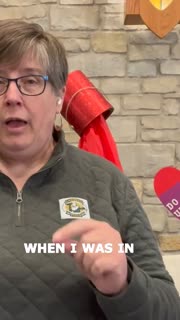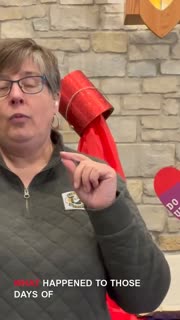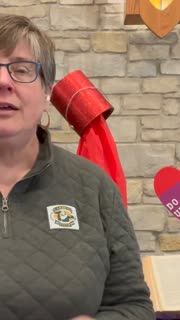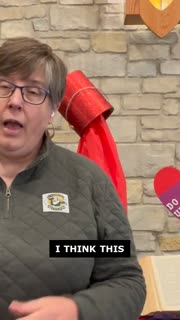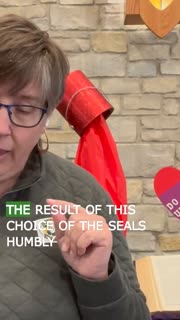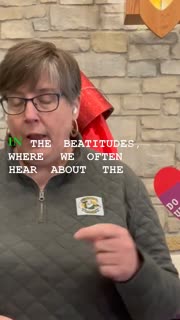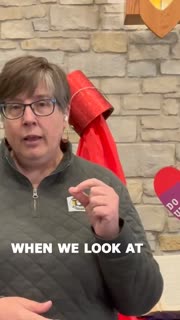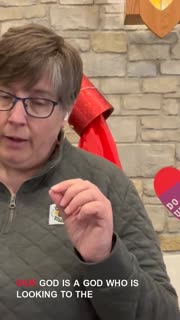Embracing Humility: The Key to Community and Progress
Devotional
Sermon Summary
Bible Study Guide
Sermon Clips
1) "When I was in college, I studied political science, and I remember reading about how Lyndon Baines Johnson worked with Congress and the Senate to get the civil rights and the voting rights acts passed in the mid 1960s. And one of the things that really stood out to me from the story of these legislative efforts we all talk about, no one wants to see how the sausage is made. No one wants to know what goes in there. I read some books that showed all the little bits and pieces that were going into what made those bills when they got passed. And what stood with me is that everybody got a little bit of something. It was kind of like the 70 30 rule. The party in the majority got 70% of what they wanted in the bill, but the party in the minority got 30% of what they wanted in the bill. It was not all or nothing. It was not all 100%, zero sum game. Everyone could go back to their constituents and say, you know what? I got us a little something." [00:56] (67 seconds)
2) "What happened to those days of negotiation and compromise? What got us to a point where different groups of people think they have the entire absolute truth, they have all the answers, and they get everything, and other people get nothing. We got things done as a community. When we negotiated and we compromised, we made sure there was a little bit of something in there for everyone. Yeah, maybe it was messy. Maybe it wasn't completely neat. Maybe there was stuff in there you didn't like. But together, we came to decisions, and we got things passed. We got things done." [02:27] (41 seconds)
3) "God, just like in the time of David, is looking at the heart. God knew David was the next king of Israel because God knew that David had a heart of love, a heart that was in tune with God's heart of love. Now, Isaiah is not the only one who brings up this idea of what place does worship have in our life with Goddesse. Micah in chapter six and Amos in chapter five also speak about the role of worship in our lives, in balance with other things in our lives. In both of them, they are really looking at pretentious rituals and worship, you know, the most perfect music, the most perfect sacrifices. And they both find them inadequate, wanting. Both of them talk about walking humbly with God, doing justice, letting justice roll like an ever flowing stream. The prophets time and time again come back to this message that it's not about us. It's not about how much stuff we have, how glorious we are, how smart we are. It is about God." [04:37] (76 seconds)
4) "I think this story reminds us that God is on a scale far beyond anything we can think of, far beyond us. Are we small enough in our understanding of all that God is and all that God has done? Are we still thinking we know everything? Are we still thinking we are always right? Are we planning on making our lives comfortable? Or are we planning a life that is integrated with God and God's priorities? There is a space for worshiping God, but there's also a space for being in a humble relationship with God and a space for doing God's justice in the world." [07:03] (51 seconds)
5) "The result of this choice of the SEALs humbly choosing to take some of their downtime to assist the army troops in a thankless task. I mean, who thanks you for moving sandbags like they need to be done, but who wants to do this work? By doing that, the Seals and the army troops built up trust between themselves. They built a relationship. They expanded their relationship. They knew that down the road in the future, the respect that they gained from this 45 minutes of joint work was going to pay off. They were a stronger community that was going to have each other's back, and they were going to work together better because they had taken 45 minutes to humbly move sandbags together." [10:26] (54 seconds)
6) "In the beatitudes, where we often hear about the people who are blessed or happy, depending on your translation, Jesus would have used an aramaic word that's a little bit harder to translate directly into English, but his word would have meant that the people who are blessed are receiving a supreme gift from goddess, a joy that is not reliant on good circumstances or fortune. The scholar nt Wright says, in our world, most people think wonderful news consists of success, such as wealth, long life, victory, and battle. What Jesus is offering is wonderful news for the humble. The simpler things that make a humble life better. The life of a child better the life of a person living with a disability. The life of of a person who is living in poverty." [12:03] (53 seconds)
7) "When we look at the life of Jesus, he shows up on a donkey. He does not show up on a war stallion. Like the great leaders of the Roman Empire, he is following the words of the prophet Zechariah, who says the humble king will show up on a donkey. We know that Jesus could have dazzled us. Jesus created the war stallion. Jesus created the galaxies and the comets. He could have come demanding privileges and rights. He could have come with all the gold and platinum the world has to offer. But instead, Jesus lived with humility. He served others, he washed others dirty, dusty feet before a meal. He used his time here to build trust, to build respect through his humble service." [13:52] (55 seconds)
8) "Our God is a God who is looking to the heart. Our God is not looking to status, to possessions, to credentials. Our God is looking at how we choose to build community. Are we making daily choices to serve with humility, the people around us, so that we build the trust and respect that we need to be able to work together in difficult moments as we consider the needs of our community during this election season, I think we have to think, what humility am I willing to live with in order to build respect and trust with the people around me? Am I willing to compromise what I think is the whole truth in order to build trust with the people around me? Am I willing to see that maybe I don't have all the answers. Maybe I don't have all the truth." [15:46] (62 seconds)
Ask a question about this sermon
2) "What happened to those days of negotiation and compromise? What got us to a point where different groups of people think they have the entire absolute truth, they have all the answers, and they get everything, and other people get nothing. We got things done as a community. When we negotiated and we compromised, we made sure there was a little bit of something in there for everyone. Yeah, maybe it was messy. Maybe it wasn't completely neat. Maybe there was stuff in there you didn't like. But together, we came to decisions, and we got things passed. We got things done." [02:27] (41 seconds)
3) "God, just like in the time of David, is looking at the heart. God knew David was the next king of Israel because God knew that David had a heart of love, a heart that was in tune with God's heart of love. Now, Isaiah is not the only one who brings up this idea of what place does worship have in our life with Goddesse. Micah in chapter six and Amos in chapter five also speak about the role of worship in our lives, in balance with other things in our lives. In both of them, they are really looking at pretentious rituals and worship, you know, the most perfect music, the most perfect sacrifices. And they both find them inadequate, wanting. Both of them talk about walking humbly with God, doing justice, letting justice roll like an ever flowing stream. The prophets time and time again come back to this message that it's not about us. It's not about how much stuff we have, how glorious we are, how smart we are. It is about God." [04:37] (76 seconds)
4) "I think this story reminds us that God is on a scale far beyond anything we can think of, far beyond us. Are we small enough in our understanding of all that God is and all that God has done? Are we still thinking we know everything? Are we still thinking we are always right? Are we planning on making our lives comfortable? Or are we planning a life that is integrated with God and God's priorities? There is a space for worshiping God, but there's also a space for being in a humble relationship with God and a space for doing God's justice in the world." [07:03] (51 seconds)
5) "The result of this choice of the SEALs humbly choosing to take some of their downtime to assist the army troops in a thankless task. I mean, who thanks you for moving sandbags like they need to be done, but who wants to do this work? By doing that, the Seals and the army troops built up trust between themselves. They built a relationship. They expanded their relationship. They knew that down the road in the future, the respect that they gained from this 45 minutes of joint work was going to pay off. They were a stronger community that was going to have each other's back, and they were going to work together better because they had taken 45 minutes to humbly move sandbags together." [10:26] (54 seconds)
6) "In the beatitudes, where we often hear about the people who are blessed or happy, depending on your translation, Jesus would have used an aramaic word that's a little bit harder to translate directly into English, but his word would have meant that the people who are blessed are receiving a supreme gift from goddess, a joy that is not reliant on good circumstances or fortune. The scholar nt Wright says, in our world, most people think wonderful news consists of success, such as wealth, long life, victory, and battle. What Jesus is offering is wonderful news for the humble. The simpler things that make a humble life better. The life of a child better the life of a person living with a disability. The life of of a person who is living in poverty." [12:03] (53 seconds)
7) "When we look at the life of Jesus, he shows up on a donkey. He does not show up on a war stallion. Like the great leaders of the Roman Empire, he is following the words of the prophet Zechariah, who says the humble king will show up on a donkey. We know that Jesus could have dazzled us. Jesus created the war stallion. Jesus created the galaxies and the comets. He could have come demanding privileges and rights. He could have come with all the gold and platinum the world has to offer. But instead, Jesus lived with humility. He served others, he washed others dirty, dusty feet before a meal. He used his time here to build trust, to build respect through his humble service." [13:52] (55 seconds)
8) "Our God is a God who is looking to the heart. Our God is not looking to status, to possessions, to credentials. Our God is looking at how we choose to build community. Are we making daily choices to serve with humility, the people around us, so that we build the trust and respect that we need to be able to work together in difficult moments as we consider the needs of our community during this election season, I think we have to think, what humility am I willing to live with in order to build respect and trust with the people around me? Am I willing to compromise what I think is the whole truth in order to build trust with the people around me? Am I willing to see that maybe I don't have all the answers. Maybe I don't have all the truth." [15:46] (62 seconds)
